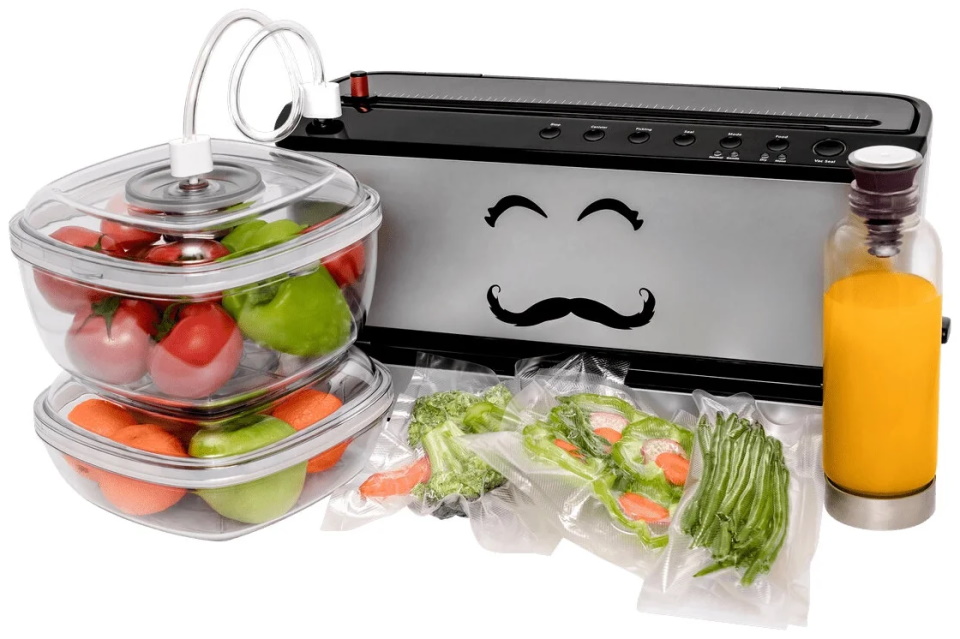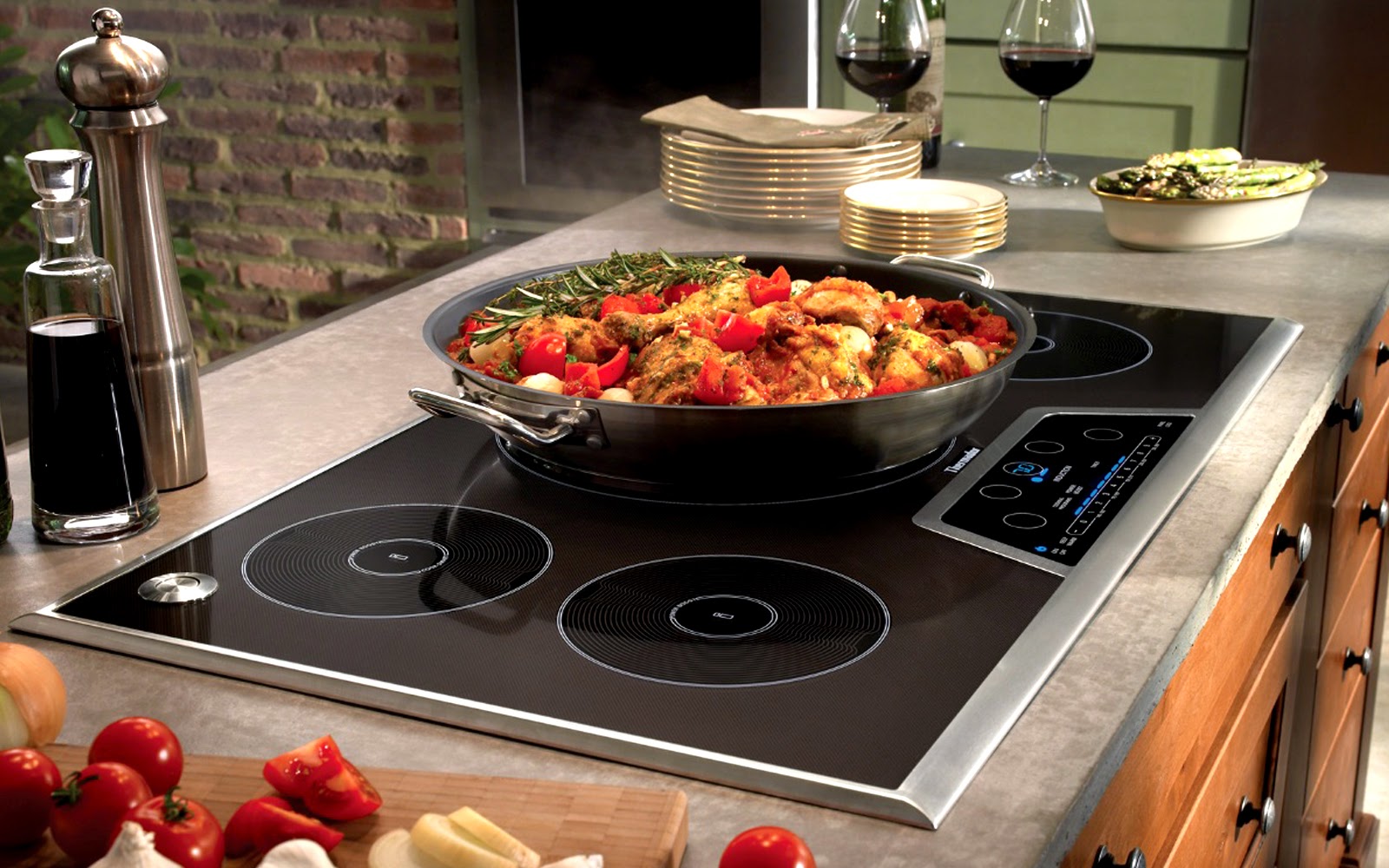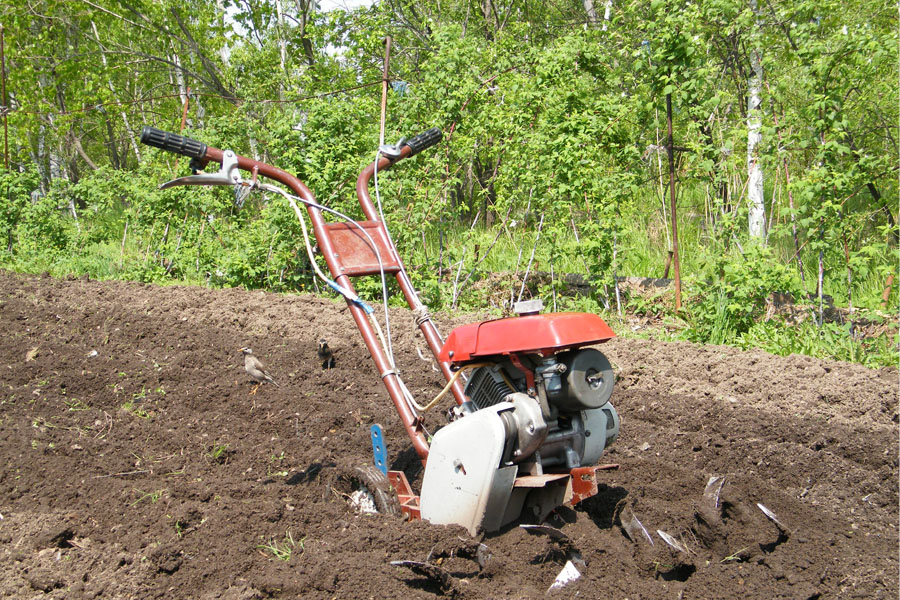Rating of the best heaters for balconies and loggias in 2022

Do you want to equip your apartment with an office or a cozy corner for relaxation, but there is not enough space? Or maybe you just want to increase the usable area of the apartment? To solve all these problems, you can use a balcony or loggia. It is only necessary to convert this room into a living area. And so that the corner can be used in winter, you need to insulate the walls with high-quality thermal insulation.
Modern stores offer a huge selection of heaters that solve this problem. The rating of the best heaters for balconies and loggias, which we present to you, will help you understand all the diversity.
How to choose the right insulation for balconies and loggias
Usually these premises are used as a storage of unnecessary things. To turn them into a habitable living space, it is necessary to make a good repair. To begin with, a balcony or loggia is glazed with high-quality windows with an energy saving function. After that comes the turn of the insulation of the balcony.
All hardware stores have in their assortment a large selection of materials suitable for wall, floor and ceiling insulation. All of them have a different structure, composition and quality. But they solve the same problem - this is insulation.

Another parameter by which materials for insulation differ is the price. There are expensive materials on sale that are not available to most buyers, there are also more budget options. In addition to insulation, you will need to purchase other materials that will be needed when repairing the balcony. This includes beams for battens, fasteners, adhesive materials, as well as foam for mounting.
How to choose a heater
Before you go shopping for a heater, you need to figure out what you should pay attention to, which characteristics are important and which can be ignored. After all, all the best-selling materials differ not only in price. So you can avoid mistakes when choosing.
The weight
Since the balcony or loggia is actually on the street, all surfaces will have to be insulated. In such conditions, it is important that the weight of the insulation is minimal. Such thermal insulation will not deform building structures.

In wet weather, fillers that have a cotton or fibrous structure are able to absorb moisture. As a result, they become heavier.
Insulation thickness
Please note that there is very little space on the balcony or loggia, and during installation, part of the space will be eaten by the construction of the beams. In addition, a facing material will still have to be laid on top of the insulation. Therefore, the thickness should be minimal.
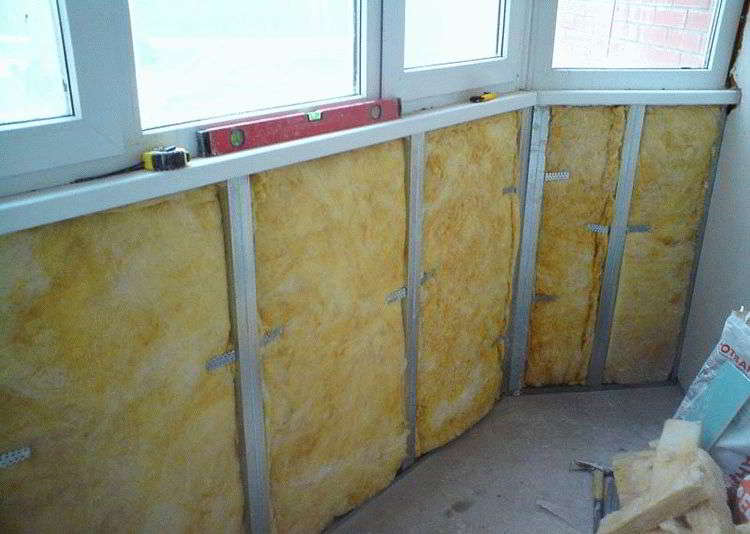
When installing some materials, such as mineral wool, a special wooden crate will be required, which takes up additional space. Therefore, it is wiser to choose thermal insulation of small thickness, which can be attached directly to the walls or ceilings of the balcony on reinforced concrete.
combustibility
We all know that apartment fires often occur due to the fact that someone, having smoked on the balcony, throws an unextinguished cigarette butt down, and it ends up on the neighbors' balcony. Therefore, resistance to fire is one of the important qualities of a heater.
Give preference to non-flammable materials. Moreover, now there is a wide choice of heaters resistant to fire in stores.
Ease of use
This parameter is relevant if you are going to do repairs on the balcony yourself. In this case, it is important that the insulation can be easily installed even without special builder skills.

For example, a widely advertised insulation called polyurethane foam has many advantages. But in order for them to insulate the balcony, they will need a special device for spraying and the efforts of several workers. If you arrange insulation with mineral wool, then you first need to make a special crate. But for the insulation of walls with polystyrene foam, no special knowledge and skills are needed.
Vapor permeability
In any room there are always moisture vapor penetrating inside through concrete or brick walls.When using insulation that retains heat, it is often necessary to use insulation with a film or foil as an additional protection against moisture. This leads to the fact that wet vapors cannot penetrate outside, they settle in the form of condensate on the walls and on the insulation. All this leads to the growth of mold and the defeat of the walls by fungal colonies.
To avoid this unpleasant phenomenon, it is necessary to use heaters with vapor-permeable properties. In another case, it is necessary to leave a small gap between the layers of insulation so that air can move. In this case, the influx of fresh air will not allow moisture to settle on the insulation.
Which brand of heater is better
There are a lot of popular companies engaged in the production of heaters. However, the following companies deserve the greatest respect from buyers:
- The Danish company Rockwool is rightfully considered one of the best manufacturers of such materials. The production uses natural raw materials, which are processed at high temperatures. The result is an environmentally friendly and durable thermal insulation. The insulation turns out to be non-combustible, absorbs sounds well, does not deform, is not afraid of moisture.
- The thermal insulation of the French company Isover is environmentally friendly and at the same time affordable. The products of this company are resistant to fire, absorb sounds well, retain heat well, have good vapor permeability and are very durable.
- Ursa produces excellent thermal insulation, which can be used both for home insulation and for summer cottages. All products are manufactured using modern technologies that exclude the use of phenolic compounds. The company offers a wide range of products for warming various surfaces.
- Knauf is traditionally associated with excellent quality. This applies to all goods manufactured by the German company, including thermal insulation. The insulation of this company can be used to finish a wide variety of buildings and surfaces. It is resistant to burning, does not allow fungus to develop on the surface, is durable and does not contain formaldehyde.
Rating of quality heaters
Let's look at the most popular heaters that can be used to insulate walls, floors and ceilings on balconies and loggias.
Styrofoam
This material is known to everyone, it belongs to the category of inexpensive thermal insulation. It has been used in construction for over four decades. There are a lot of companies that produce polystyrene foam, so buying it is not difficult.
Styrofoam is available in sheets of various thicknesses and sizes. It has good thermal insulation properties, can be used as sound insulation. For polystyrene, moisture, rodents and fungus are not terrible. It withstands the environment well and is very durable.
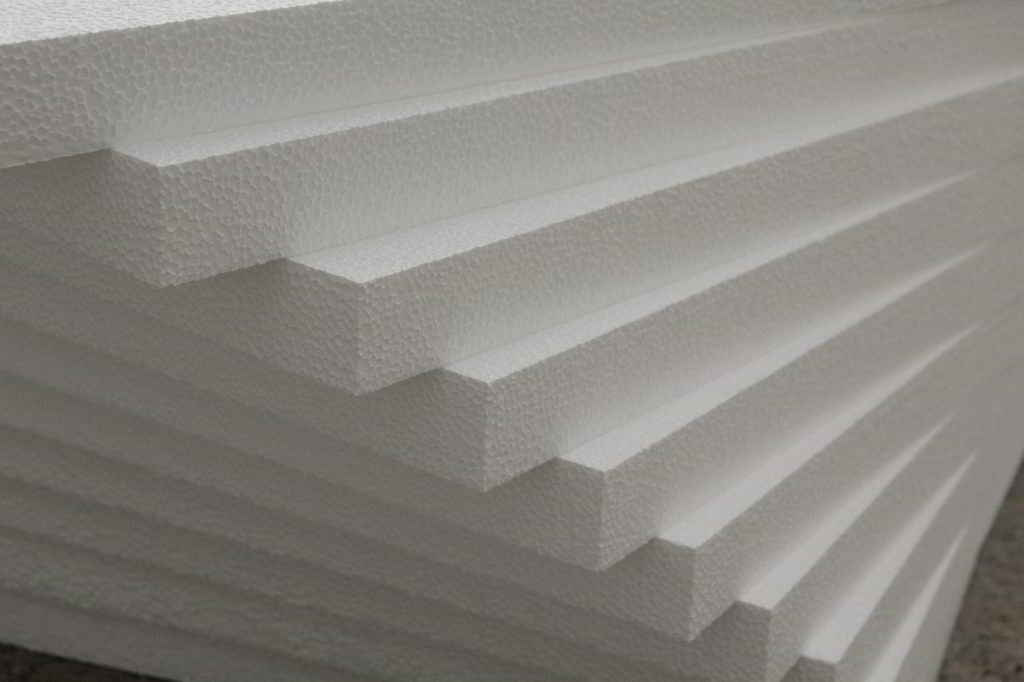
At the same time, polystyrene is dangerous to use because of its high flammability and ability to break down from contact with certain chemicals.
- Cheap.
- Good thermal insulation properties.
- Light.
- Durable.
- Resistant to fungus, does not attract rodents.
- Easy to install.
- combustible
- Fragile.
- Fear of exposure to chemicals.
The price of foam plastic depends on many parameters, the cheapest material costs an average of 28 rubles per sheet.
Izolon
This product is made from polymer raw materials by heating and foaming under high pressure. Strong polyethylene capsules with air inside are obtained.Izolon, which is otherwise called polyethylene foam, provides good sound absorption and thermal insulation. Outside, the heat-insulating material is covered with a layer of foil, which provides protection against moisture and heat reflection.
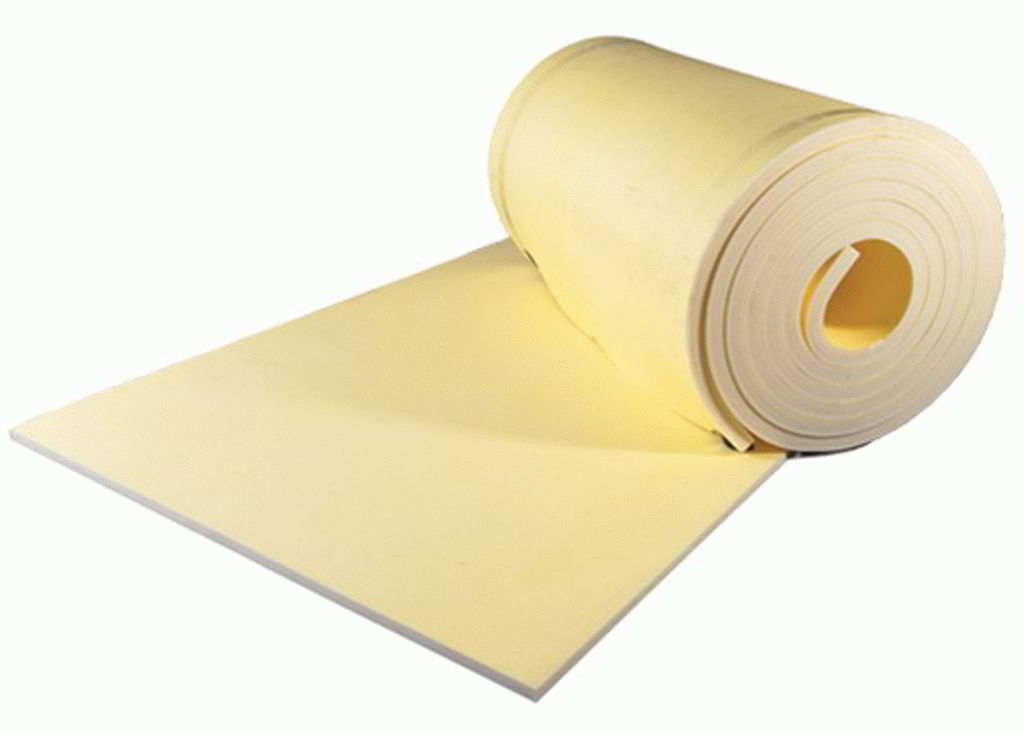
Isolon is resistant to chemicals, does not emit substances hazardous to humans. It can be used as an independent insulation, or in combination with other materials.
- Durability.
- Resistant to chemicals, weathering.
- Fire resistance.
- Lightweight and thin.
- Elastic and resilient.
- Easy to install.
- Environmental friendliness and safety.
- Expensive.
- It is necessary to treat the outer layer with care.
- The isolon layer can only be covered with a protective film or painted.
The average price depends on the thickness and starts from 101 r per square meter.
Extruded polystyrene foam
The product is a thermal insulation of excellent quality. The trade name for this material is penoplex. It is produced by mixing ordinary foam granules with a foaming agent. This makes the penoplex very durable and allows it to withstand a large mechanical load.
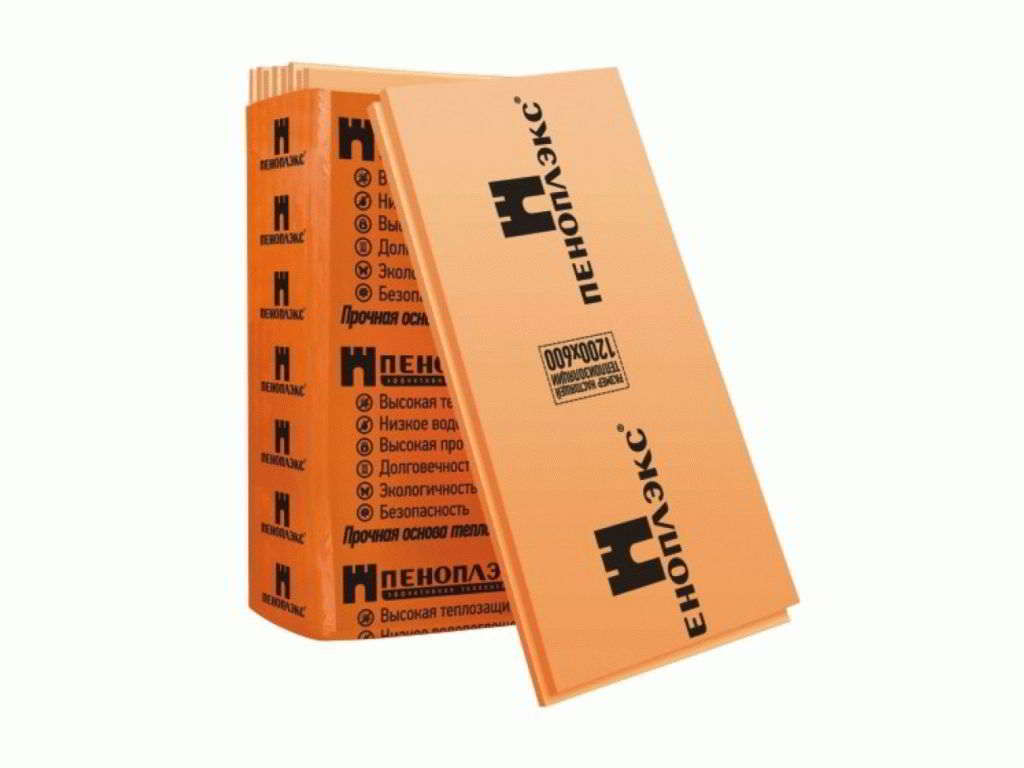
- High thermal insulation qualities.
- Can be used for thermal insulation of foundations, roofs or plinths without waterproofing.
- Practically does not burn.
- Use at high and low temperatures.
- Ease of installation.
- Fungus resistance and environmental friendliness.
- The material does not breathe well.
- Expensive.
- You need to make a frame or use special glue.
- Poor UV resistance.
The average price is 1332 rubles per pack.
Comparative video of this insulation with the following material - Stone wool:
stone wool
Thermal insulation called "stone wool" is made from basalt using binders. After processing, a fibrous material is obtained from which plates or rolls of various thicknesses and sizes are made. Stone or basalt wool can be used to insulate walls made of hollow bricks or wood.
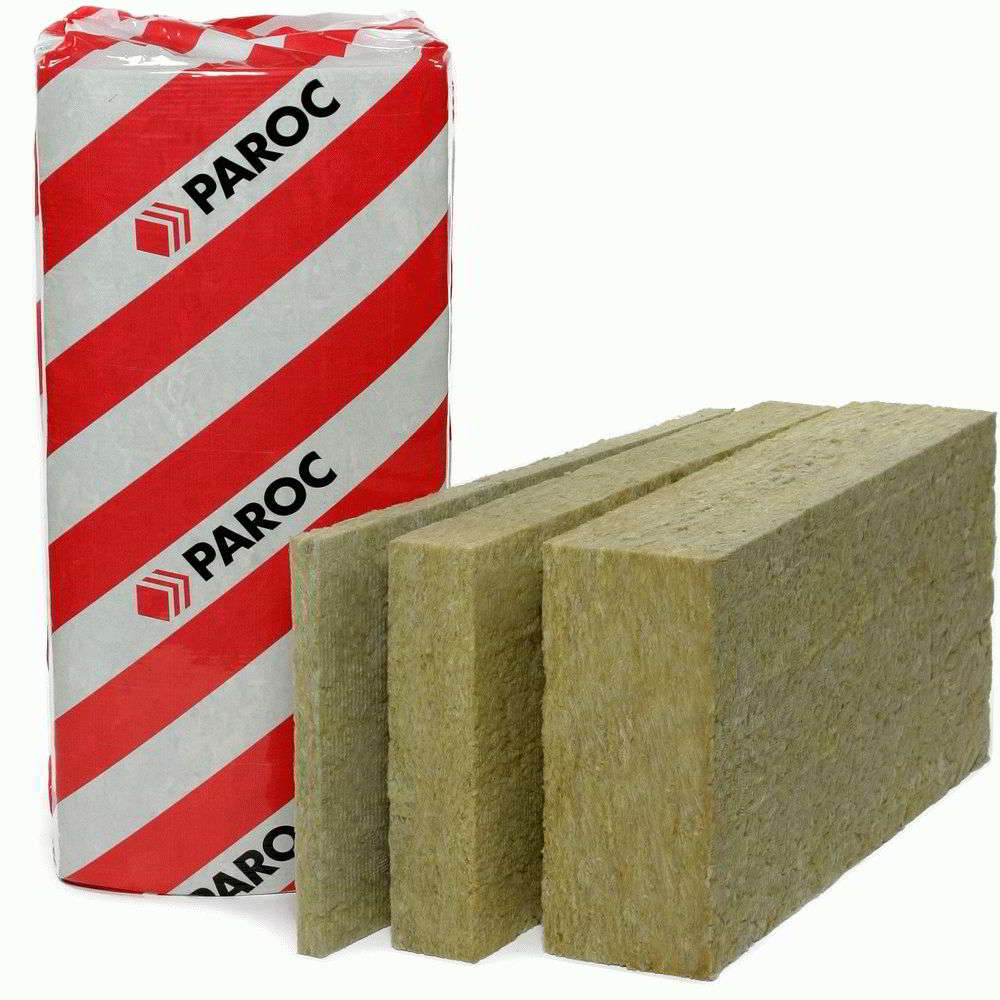
- Provides good thermal insulation.
- Does not absorb water.
- Does not retain moisture in the room.
- Practically does not burn.
- Doesn't deform.
- Does not react to chemicals and fungus.
- High price.
- During installation, protection must be used.
- Cannot be used to insulate foundations or plinths.
- May release phenol.
The average price is from 436 rubles per pack.
glass wool
This well-known insulation is made from glass waste, combining microscopic fibers into mats or slabs for thermal insulation. This insulation is universal; it can be used to insulate walls from the inside and outside of the building, roof and other things.
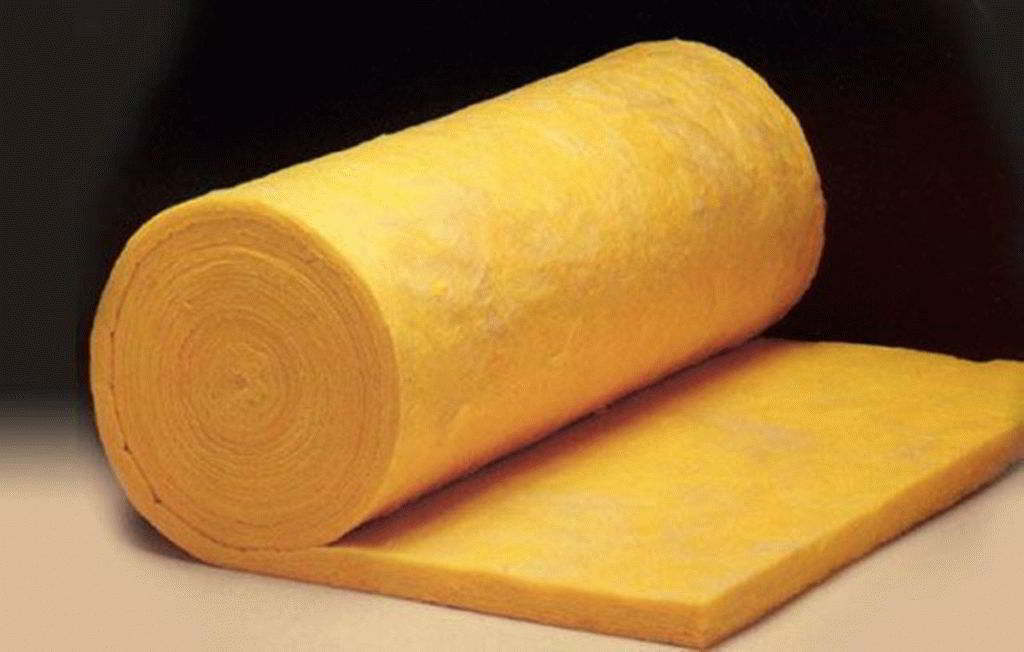
- Good thermal insulation properties. A five-centimeter layer of glass wool conducts heat in the same way as a meter-long layer of hollow brick masonry.
- Does not absorb water.
- Lightweight and compressible.
- Does not emit harmful substances.
- Does not burn.
- Does not attract rodents, insects and is not susceptible to infection by fungus.
- Cheap.
- The fibers often break.
- It needs to be well insulated.
- Destroyed by sunlight.
- Short service life.
The average price is from 800 rubles per roll.
Expanded clay
This bulk material is used for floor insulation. It is an oval granule made from clay.As a result of processing, a light porous fraction is obtained, which perfectly fulfills its main task - to retain heat.
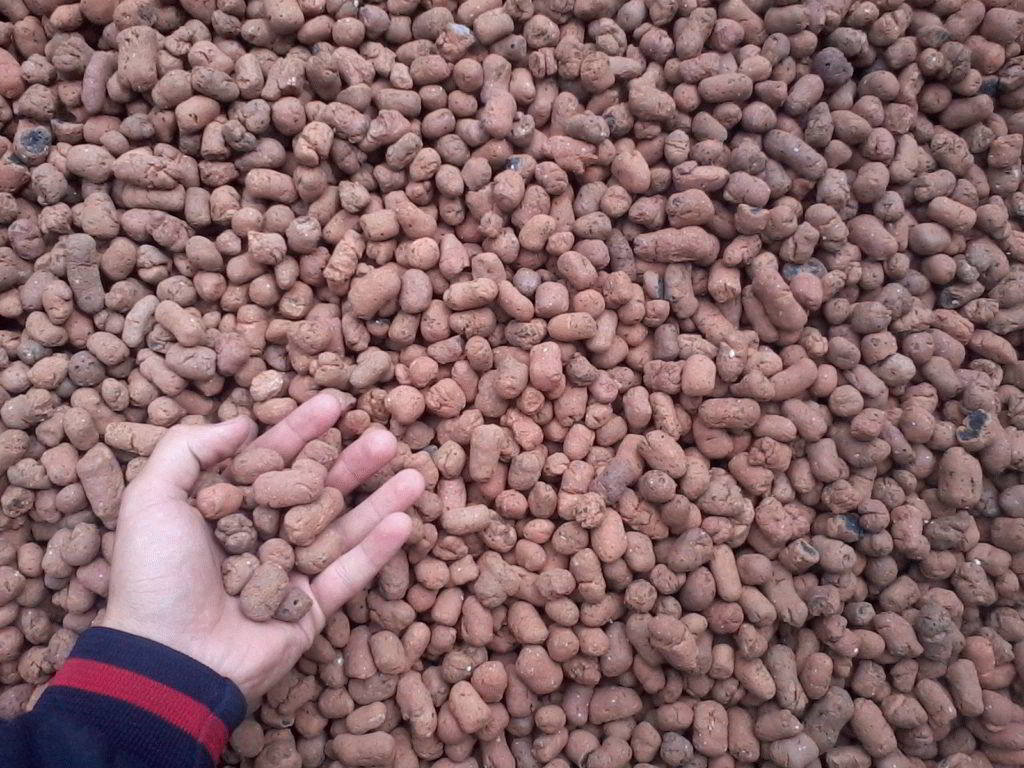
- Human safety.
- It tolerates low temperatures well.
- Does not rot, fungus or chemicals.
- Easy to install.
- Cheap.
- Fragile
- A large layer of expanded clay is required for high-quality thermal insulation.
The average price is 200 rubles per cubic meter.
slag wool
One of the varieties of mineral wool is slag wool, which is obtained from blast-furnace slag by processing into microfibers. Slag wool was first used in Soviet times. Now it is rarely used, since more modern materials have appeared.
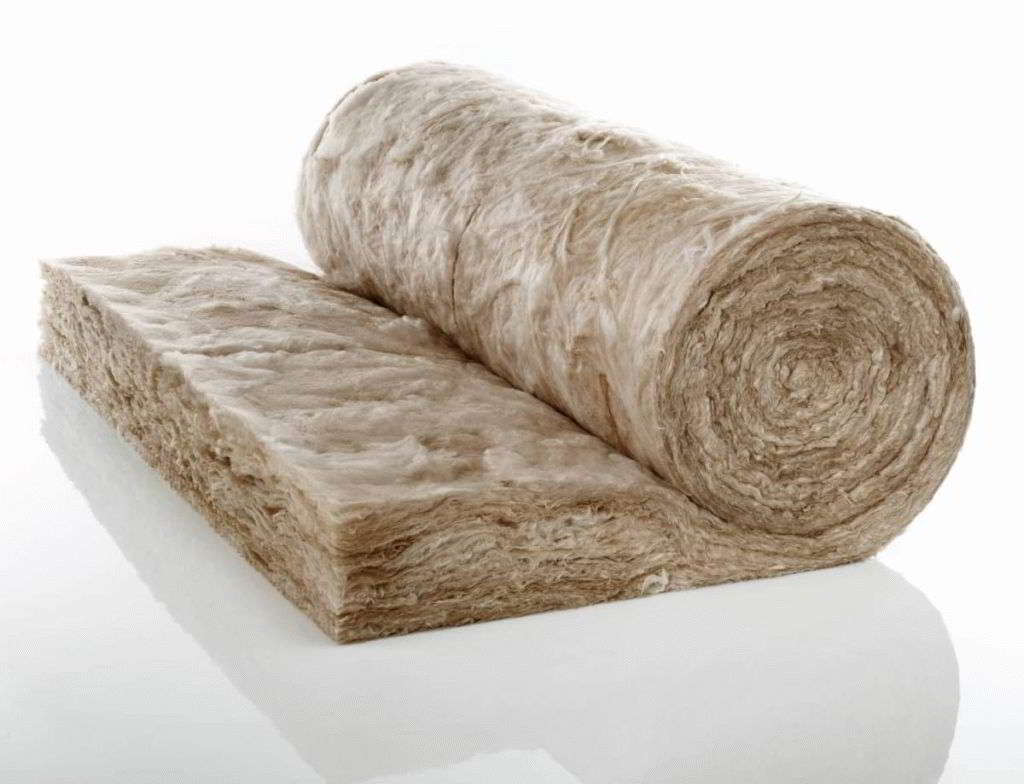
- Good thermal insulation, but inferior in quality to stone wool and glass wool.
- Good protection against extraneous noise.
- Budget.
- Easy to install even alone and without special skills.
- Under suitable conditions, the service life of slag wool is 50 years.
- Does not tolerate sudden changes in temperature.
- Absorbs water, due to which it loses its thermal insulation properties.
- Do not use for insulation of wooden structures, facades and rooms with high humidity.
- The presence of harmful substances in the composition.
- The need to use protection during installation.
The average price is 400 rubles per pack.
Penofol
This insulation is polyethylene foam, additionally protected by foil. The action of this material is based on the principle of heat reflection and is similar to the action of a conventional thermos. The material is particularly thin, its thickness does not exceed 10 mm. On both sides, the polyethylene base is covered with the thinnest layer of aluminum foil.
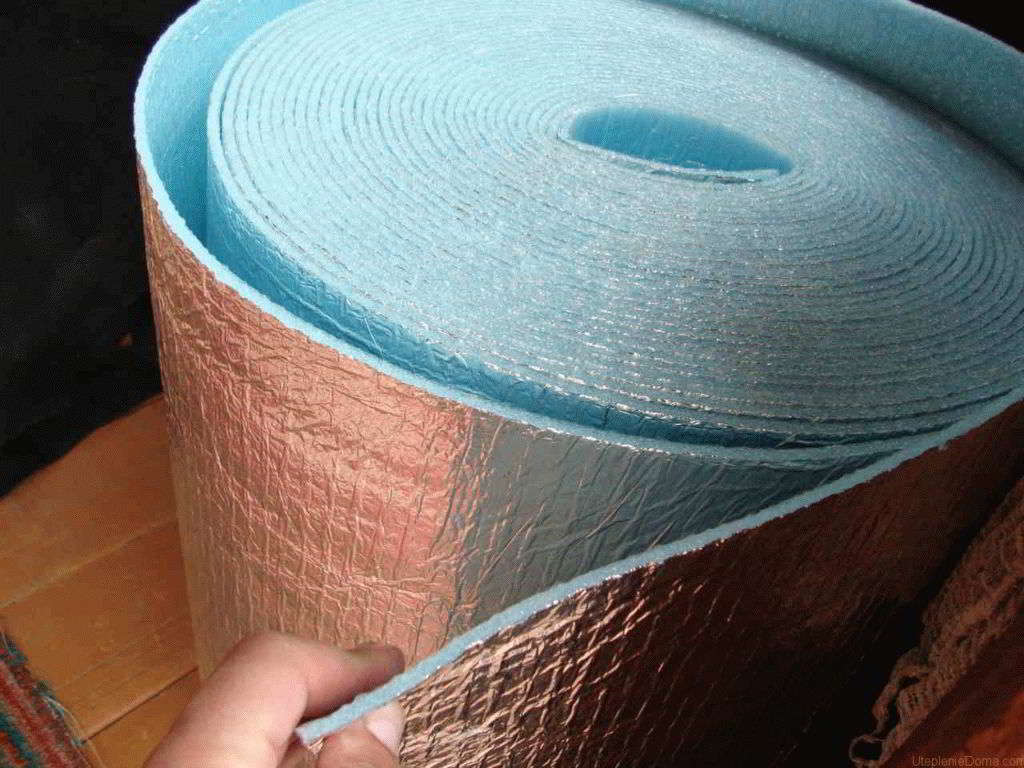
- Small thickness. At the same time, penofol does not lose its thermal insulation qualities.
- Light.
- Easy to mount even alone without special tools and knowledge.
- Harmless to humans.
- Does not burn.
- No vapor barrier required.
- Low price.
- Poor rigidity, which limits finishing methods.
- You need to use special glue or fasteners.
The average price is from 1400 rubles per pack.
As you can see, the choice of thermal insulation materials is quite large. Therefore, it is not difficult to choose a product that suits all parameters. In addition, modern materials are quite simple to use and you can insulate a balcony with them even without special skills.
new entries
Categories
Useful
Popular Articles
-

Top ranking of the best and cheapest scooters up to 50cc in 2022
Views: 131650 -

Rating of the best soundproofing materials for an apartment in 2022
Views: 127689 -

Rating of cheap analogues of expensive medicines for flu and colds for 2022
Views: 124518 -

The best men's sneakers in 2022
Views: 124032 -

The Best Complex Vitamins in 2022
Views: 121938 -

Top ranking of the best smartwatches 2022 - price-quality ratio
Views: 114979 -

The best paint for gray hair - top rating 2022
Views: 113394 -

Ranking of the best wood paints for interior work in 2022
Views: 110318 -

Rating of the best spinning reels in 2022
Views: 105328 -

Ranking of the best sex dolls for men for 2022
Views: 104365 -

Ranking of the best action cameras from China in 2022
Views: 102215 -

The most effective calcium preparations for adults and children in 2022
Views: 102011





